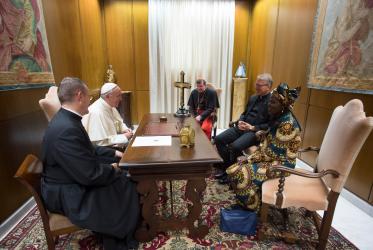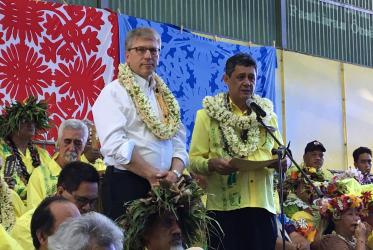Displaying 181 - 200 of 443
WCC: In North Korea, use negotiation not confrontation
04 September 2017
Pope Francis, WCC leadership meet in Rome
24 August 2017
The whole world is praying for peace on the Korean Peninsula
11 August 2017
We are called to work on a peace built on trust, not power
04 August 2017
ÖRK-Generalsekretär besucht Pazifikregion
31 July 2017
WCC general secretary visits the Pacific region
31 July 2017




